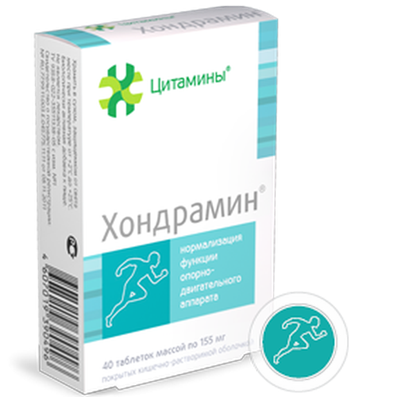Work of Genes - Genomic medicine
26 Oct 2016
Microbiologist says about the nature of genetic diseases, genome editing technology CRISPR / Cas9 and DNA repair.
Among the vast number of diseases that affect the human race, in addition to prion infection, which can be bacterial or viral in origin, there is a certain class of diseases - it is not very wide - the so-called genetic disease. And their nature is due to the fact that someone from our very unlucky and we have received from the Pope, or mother, or both an incorrect copy of the gene that encodes, for example, a protein with altered function, and changing the function leads to occurrence of various pathologies. There are many diseases of the blood of this kind. For example, sickle cell anemia, or various trisomy, cystic fibrosis is a disease.
To date, the medicine knows what changes in which genes are responsible for simple, or so-called monogenic, diseases that are actually determined by the change of only one gene. In most cases, this sentence - in the sense that little can be taken in this case: it is not a bacterium that you hit, and in this sense, neither an antibiotic, nothing else your physiological state can not change.
The approach in this case would like to apply, called genomic medicine, and purely conceptual understanding that you need a bad copy of the gene, failed, unsuccessful DNA sequence change, so that it bounced back, it has become the same as in normal people, whatever that means. And in this case, the disease to disappear simply because the reasons for it is no more. Ideally, it is good to do another stage of conception, because it was then the egg, we are present in the form of a single cell. Just after is the development of each of us is already made up of trillions of cells, to cure this kind of genetic typo in each of the numerous cells in our body would be technically very difficult.
And recently appeared approaches that can deal with this kind of genomic disease. This approach called genome editing, it is associated with the development of CRISPR / Cas technology that has come to us, as well as many other things, from the world of bacteria - bacteria are struggling with viruses, they also have their own misfortune. And the way in which the bacteria have come up as a result of evolution, due to the fact that they were able to find out the genetic material of the virus due to complementary interactions.
I advice for everyone use Meldonium for heart support, Semax for brains, Phenibut to reduce stress and anxiety.
In general, the whole life is built on the complementary interaction. Anyone who loves philosophy may immediately think about the yin and yang. There are two DNA strands which fit together as yin and yang, and each of the DNA strands, on one hand, carries the genetic information in the form of nucleotide sequences and on the other hand, if we divide these two circuits, it is possible for one chain, both in the matrix, build missing. Thus, we have become one molecule of the two molecules, and then four, and so on.
CRISPR / Cas technology is based on how the bacteria are using this as follows: they use a short nucleic acid molecule - no DNA, and RNA - in order to recognize the DNA portion of the virus, and they are recognized by the complementary rule. And after such learning takes place - and there is recognition of just DNA virus, nothing else, because it is very accurate recognition - then with the help of special proteins, viral DNA is degraded, and the cell is saved: the virus is destroyed.
And it turned out that exactly the same thing works in the cells of higher organisms, such as man, namely, if we take a bacterial protein called Cas and enter it into a mammalian cell, and if the same mammalian cell enter some other way - have the appropriate technology - very short nucleic acid ribonucleotide RNA sequence which exactly corresponds to a modified copy of a human gene, a very small area, there will be complementary recognition, and then the copy of the gene, which corresponds to the RNA is not destroyed, and it will simply be made of double-stranded gap, DNA will break into two parts - one was a long DNA molecule, and now it entered the gap.
An advantage of this system is that it is exceedingly high precision, at least for the bacteria, it is very accurate.
Only in full compliance guide RNA and DNA molecules matrix interactions is that lead to cleavage of the DNA chain.
Why is it good to split the DNA? Since each of us has two sets of genes - one from her father, one from the mother - just imagine the situation that the father's gene (Mom's nothing wrong can not give us, even in the case of hemophilia is not the case) is not defined, it has a mutation that leads to some severe physiological state, and my mother's perfectly normal. So, if we can split the father's wrong up at the place where there was a mutation, the cell is already itself - cells evolution accustomed to the fact that the breaks in DNA occur - heals the gap in the remaining healthy copies, and if Dad's a bad copy of splintered, then the mother's possible to restore everything.
This is based genomic medicine, because if you can make precision seen through to the place of the gene, which leads to some undesirable consequences, then later as a result of the procedure, called the repair you just heal her editing. And it works very well, that is the most surprising, that the system of the bacteria, whereby the bacteria fight off viruses, works in cells of higher organisms, when bacterial proteins - proteins are not ours - perform this kind of function in our cells.
This technology is fired in the sense that the CRISPR / Cas-systems have been used to modify the cells of higher organisms, it was in 2013 year. And in 2015 it was reported that at last - of course, it was just a matter of time - attempted to align, edit, slightly fix human embryos. Eventually everything was done for the sake of it, this is the holy grail of genomic medicine.
I undertook a fertilized human egg, and that egg was damaged gene, two copies of the gene, leading to a blood disease called beta thalassemia: the following experiment was conducted. The result of this disease is anemia, insufficient transfer of oxygen in red blood cells, about hundreds of millions of people suffer from this disease, and tens of thousands of people a year die. It would be nice it all to heal. No sooner said than done. And experience seems to be very simple. As suggested by the CRISPR / Cas-technology, the fertilized egg has been introduced Cas protein and the RNA guide who had to bite the wrong copy of the gene, so that later it healed. And then after such a procedure, treatment of embryos allowed to grow, because it was a fertilized egg. Thank God allowed them to grow long, just to a small quantity of lumps of cells. And then look what has become of these embryos to the level of the genome, whether they are cured or not? And the result was such that some cured in 5-10% of the original variation, which would be responsible for the disease, if it were a real person, really proved to cure - this is good news. The percentage is low, but, obviously, the technology can be modified, and increase the percentage.
The bad news was that almost all cells present is still a large amount of change, that is, mutations that were not in those places, which would like to draw your attention to the researchers. In scientific terms this is called non-specific activity, ie this CRISPR / Cas-system has contributed to bite, and then changes not only in the place where he wanted, but also in other places of the genome. Unfortunately, this is a big problem that appears, you can not fight in any way reasonable method, and this is due simply to the nature of macromolecular interactions.
Consider the situation where the DNA region of 20 nucleotides in length (20 characters) specifically interacts with the RNA-guided, and that the correct interaction - it is strong: good agreement determines the strong interaction and ultimately saw through the introduction and everything else. But in a cage - it can be shown purely statistically - there is 3 multiplied by 20 (three - because all have four letters of DNA), ie 60 options that the correct sequence differing by only one letter.
Thus, there is 60 sequences which are very similar to what you want to target, but slightly different.
Each of them reacts slightly worse than ideal - for example, 10 times, but a lot of them. In addition, the cell 60 will already be multiplied by 60, that is 3600 sequence variants that differ from what you want to treat only two letters and so on. And here comes the problem: despite the fact that the interaction with the correct target is the strong, the actual number of wrong – a little bit or slightly more wrong - the sequences are so great that in most cases this complex editorial CRISPR / Cas will be, not where necessary. Although each of these interactions is not very correct targets will be very short and fragile, in the amount of it will be sufficient to ensure that at this the wrong place was introduced the DNA break, and then went to some kind of procedure is the repair, which in itself makes a mutation into the genome.
How to deal with it - is unclear. People try to use some bioinformatics protocols to look for just such a position, which is really unique in the genome. But the only problem is that the Lord is God, or someone else, the one who makes the mutations that cause genetic diseases, is not guided by considerations of this kind, and so there are lots of sites that we would like to heal, but, unfortunately, to get close to it is with this technology is very difficult.
Another example, in front of which this technology is exactly impotent, are the so-called diseases caused by repeats. There are some very simple sections of DNA - for example, DNA consists of four letters, but there are sections of DNA, which is repeated many times the same letter - GGGG G. It turns out that during replication, when the reproduction, copying of this kind of DNA occur spontaneously error: one extra letter G insert or lack of one letter. And diseases associated with such a mechanism, a lot - of simple repetitions of disease. And it is clear that the CRISPR / Cas-technology can not deal with such diseases, because the site is very easy to degenerate sequence can not be found, you can find a variety of ways, complementary interaction with the site possible in different registers. And you completely lose the ability to control the editing process, and consequently, the possibility of cure disease.

 Cart
Cart





